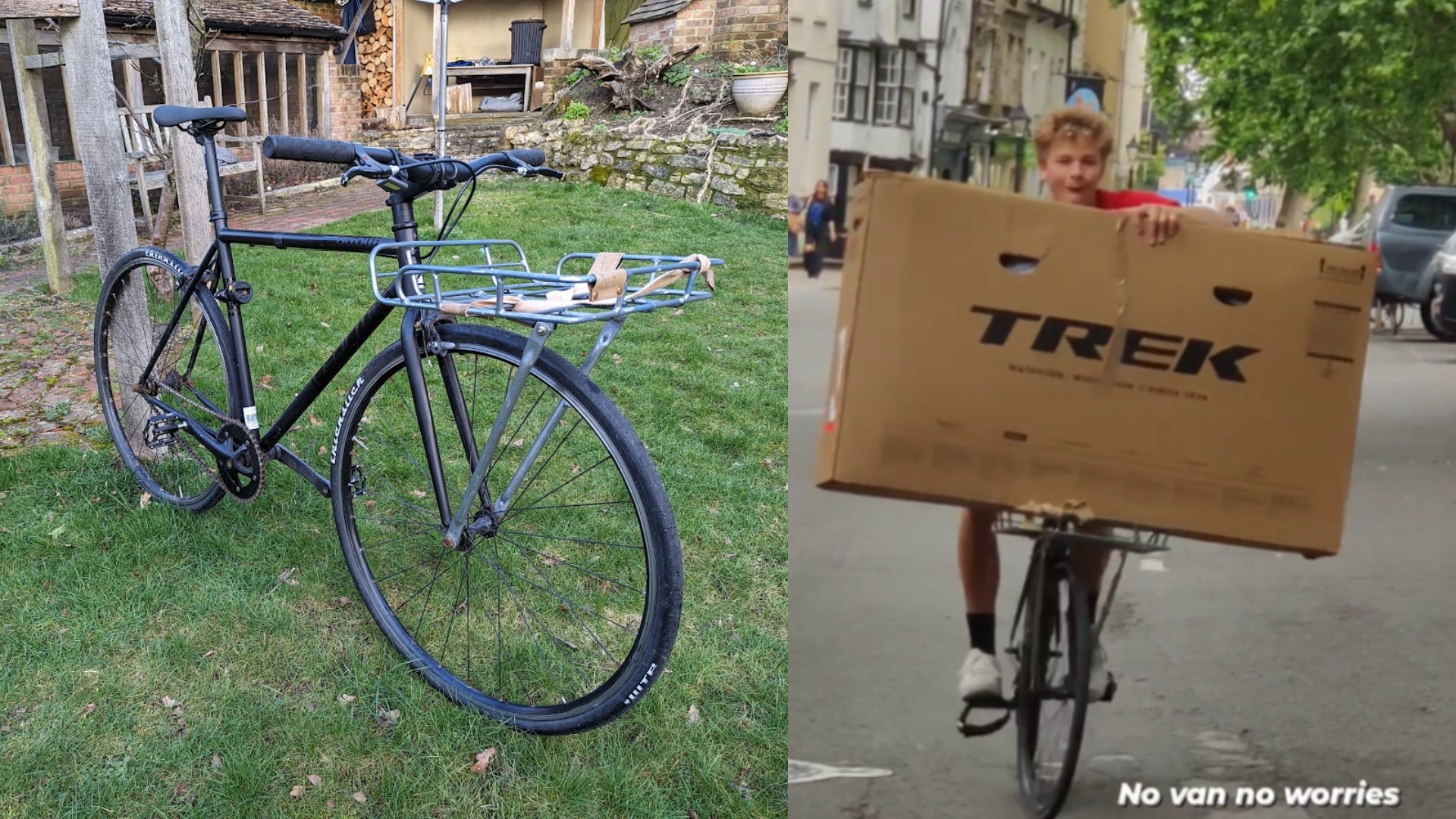I've never used my pizza rack to carry pizza, but I still love it
My fondness for my pizza rack runs much deeper than a perfectly caramelized quattro fromaggi


The latest race content, interviews, features, reviews and expert buying guides, direct to your inbox!
You are now subscribed
Your newsletter sign-up was successful
This article is part of a series called ‘A love letter to…’, where Cycling Weekly writers pour praise on their favourite cycling items and share the personal connection they have with them.
The below content is unfiltered, authentic and has not been paid for.
Ah, the trusty pizza rack. You may already be wondering, "does he actually like the pizza rack, or just what it carries?" Well, let me assure you, my fondness for my pizza rack runs much deeper than a perfectly caramelized quattro fromaggi. In fact I've never actually used it to carry a pizza, but this rack has been the unsung hero for lugging around all sorts of odds and ends, some far bulkier than it was ever intended for.
Picture this: bike wheels strapped on with a touch of audacity, protruding like spokes of fate as I navigate through the city streets. Always loaded safely and securely, yet often precarious to the eye, it's a sight that never fails to draw a few curious glances from onlookers. But therein lies the magic of the pizza rack – it's not just for pizzas; it's for the bold, the unconventional, and the slightly impractical.
My relationship with the pizza rack knows no bounds. From the mundane to the extraordinary, it's been my companion through it all. Even during my days as a cycle courier, the pizza rack never wavered, faithfully carrying parcels of all shapes and sizes across town.
Perhaps my most memorable moment with the humble Basil Portland High rack, was that it saved me about £5 in parking, before my bikepacking extravaganza in 2022. I had to box up my bike - and all of my kit - in a cardboard box, ready to rebuild and ditch the box at a recycling point outside Munich airport. The latter part was easy, but the former meant getting my bike back from my local bike shop in the center of town. Carrying 25kg of bike and gear? No problem... well, not beyond the headwind and my CdA being equivalent to a garden shed.
What's truly remarkable is that, despite the countless loads it's shouldered, my pizza rack has never given up the ghost. Not once has it let me down, not even a hint of a rattle. And to think, it only set me back a mere £50 – a small investment for such unwavering reliability.
The latest race content, interviews, features, reviews and expert buying guides, direct to your inbox!
In a world teeming with flashy gadgets and fancy contraptions, I firmly believe that the pizza rack stands tall as the ultimate solution for transporting goods around town on a bike. It's pragmatic, it's dependable, and dare I say, it's downright endearing. So here's to you, my steadfast pizza rack. May you continue to carry the burdens of urban life with poise and charm. Cheers to many more miles together!

Joe is Cycling Weekly's former tech writer. He's always had a love for bikes, since first riding a two wheeled steed before the age of four. Years down the line, Joe began racing at 16, and enjoyed great experiences internationally, racing in Italy, Spain and Belgium to name a few locations. Always interested in tech, Joe even piloted his Frankenstein hill climb bike to a Junior National Title in 2018. After taking a step back from elite level racing in April 2022, Joe joined our team as a freelancer, before becoming Tech Writer in May 2023.